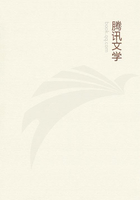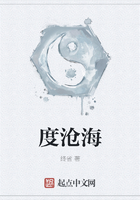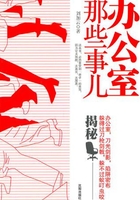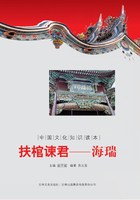Bravely strove the young soldier to look in the face Of a life where invisible hands seemed to trace O'er the threshold these words . . . "Hope no more!"
Unreturn'd Had his love been, the strong manful heart would have spurn'd That weakness which suffers a woman to lie At the roots of man's life, like a canker, and dry And wither the sap of life's purpose. But there Lay the bitterer part of the pain! Could he dare To forget he was loved? that he grieved not alone?
Recording a love that drew sorrow upon The woman he loved, for himself dare he seek Surcease to that sorrow, which thus held him weak, Beat him down, and destroy'd him?
News reach'd him indeed, Through a comrade, who brought him a letter to read From the dame who had care of Constance (it was one To whom, when at Paris, the boy had been known, A Frenchman, and friend of the Faubourg), which said That Constance, although never a murmur betray'd What she suffer'd, in silence grew paler each day, And seem'd visibly drooping and dying away.
It was then he sought death.
XVII.
Thus the tale ends. 'Twas told With such broken, passionate words, as unfold In glimpses alone, a coil'd grief. Through each pause Of its fitful recital, in raw gusty flaws, The rain shook the canvas, unheeded; aloof, And unheeded, the night-wind around the tent-roof At intervals wirbled. And when all was said, The sick man, exhausted, droop'd backward his head, And fell into a feverish slumber.
Long while Sat the Soeur Seraphine, in deep thought. The still smile That was wont, angel-wise, to inhabit her face And made it like heaven, was fled from its place In her eyes, on her lips; and a deep sadness there Seem'd to darken the lines of long sorrow and care, As low to herself she sigh'd . . .
"Hath it, Eugene, Been so long, then, the struggle? . . . and yet, all in vain!
Nay, not all in vain! shall the world gain a man, And yet Heaven lose a soul? Have I done all I can?
Soul to soul, did he say? Soul to soul, be it so!
And then--soul of mine, whither? whither?"
XVIII.
Large, slow, Silent tears in those deep eyes ascended, and fell.
"HERE, at least, I have fail'd not" . . . she mused . . . "this is well!"
She drew from her bosom two letters.
In one, A mother's heart, wild with alarm for her son, Breathed bitterly forth its despairing appeal.
"The pledge of a love owed to thee, O Lucile!
The hope of a home saved by thee--of a heart Which hath never since then (thrice endear'd as thou art!)
Ceased to bless thee, to pray for thee, save! save my son!
And if not" . . . the letter went brokenly on, "Heaven help us!"
Then follow'd, from Alfred, a few Blotted heart-broken pages. He mournfully drew, With pathos, the picture of that earnest youth, So unlike his own; how in beauty and truth He had nurtured that nature, so simple and brave!
And how he had striven his son's youth to save From the errors so sadly redeem'd in his own, And so deeply repented: how thus, in that son, In whose youth he had garner'd his age, he had seem'd To be bless'd by a pledge that the past was redeem'd, And forgiven. He bitterly went on to speak Of the boy's baffled love; in which fate seem'd to break Unawares on his dreams with retributive pain, And the ghosts of the past rose to scourge back again The hopes of the future. To sue for consent Pride forbade: and the hope his old foe might relent Experience rejected . . . "My life for the boy's!"
(He exclaim'd); "for I die with my son, if he dies!
Lucile! Heaven bless you for all you have done!
Save him, save him, Lucile! save my son! save my son!"
XIX.
"Ay!" murmur'd the Soeur Seraphine . . . "heart to heart!
THERE, at least, I have fail'd not! Fulfill'd is my part?
Accomplish'd my mission? One act crowns the whole.
Do I linger? Nay, be it so, then! . . . Soul to soul!"
She knelt down, and pray'd. Still the boy slumber'd on, Dawn broke. The pale nun from the bedside was gone.
XX.
Meanwhile, 'mid his aides-de-camp, busily bent O'er the daily reports, in his well-order'd tent There sits a French General--bronzed by the sun And sear'd by the sands of Algeria. One Who forth from the wars of the wild Kabylee Had strangely and rapidly risen to be The idol, the darling, the dream and the star Of the younger French chivalry: daring in war, And wary in council. He enter'd, indeed, Late in life (and discarding his Bourbonite creed)
The Army of France: and had risen, in part From a singular aptitude proved for the art Of that wild desert warfare of ambush, surprise, And stratagem, which to the French camp supplies Its subtlest intelligence; partly from chance;
Partly, too, from a name and position which France Was proud to put forward; but mainly, in fact, From the prudence to plan, and the daring to act, In frequent emergencies startlingly shown, To the rank which he now held,--intrepidly won With many a wound, trench'd in many a scar, From fierce Milianah and Sidi-Sakhdar.
XXI.
All within, and without, that warm tent seems to bear Smiling token of provident order and care.
All about, a well-fed, well-clad soldiery stands In groups round the music of mirth-breathing bands.
In and out of the tent, all day long, to and fro, The messengers come and the messengers go, Upon missions of mercy, or errands of toil:
To report how the sapper contends with the soil In the terrible trench, how the sick man is faring In the hospital tent: and, combining, comparing, Constructing, within moves the brain of one man, Moving all.
He is bending his brow o'er some plan For the hospital service, wise, skilful, humane.
The officer standing behind him is fain To refer to the angel solicitous cares Of the Sisters of Charity: one he declares To be known through the camp as a seraph of grace;
He has seen, all have seen her indeed, in each place Where suffering is seen, silent, active--the Soeur . . .
Soeur . . . how do they call her?
"Ay, truly, of her I have heard much," the General, musing, replies;
"And we owe her already (unless rumor lies)
The lives of not few of our bravest. You mean Ah, how do they call her? . . . the Soeur--Seraphine (Is it not so?). I rarely forget names once heard."

